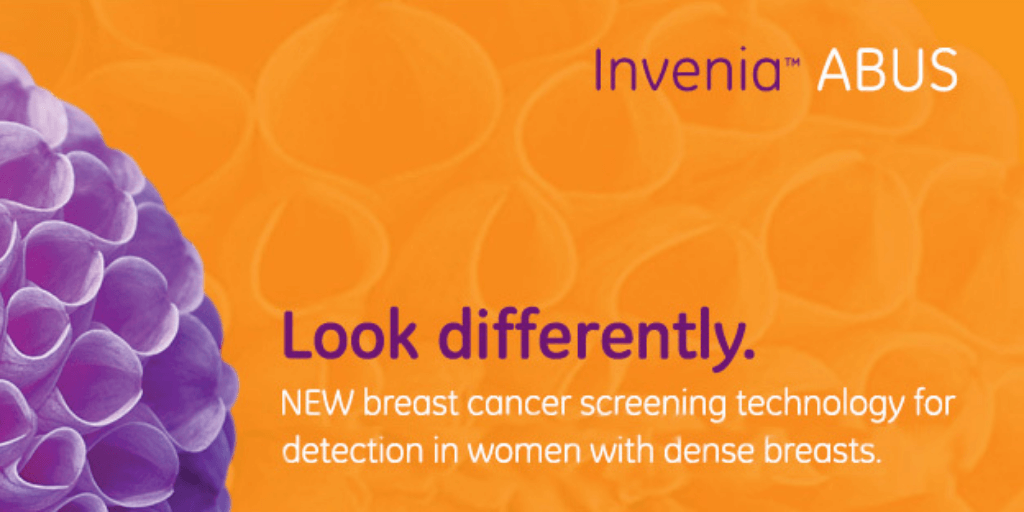NEWPORT — North Country Hospital announced this week that they are on the forefront of breast care by now offering the InveniaTM ABUS 2.0 (Automated Breast Ultrasound System), approved by the FDA for breast cancer screening as an adjunct to mammography for women with dense breast tissue.
“We are excited to add the Automated Breast Ultrasound system from GE Healthcare to our comprehensive breast cancer screening program,” said Brian Bidwell, Director of Radiology at North Country Hospital. “By offering ABUS in addition to mammography for our patients with dense breast tissue, we anticipate improving detection for small cancers that cannot be seen on a mammogram alone in these women. We believe ABUS will become an integral part of our practice for the detection of breast cancer.”
Dense breast tissue has been found to be the most common risk factor for the development of cancer, and also makes cancer more difficult to detect using mammography, according to multiple large studies.
As breast density goes up, the accuracy of mammograms goes down.
The difficulty radiologists experience when reading mammograms is that both dense tissue and cancer appear white on a mammogram.
With ABUS, suspicious masses appear black against the white dense tissue.
In early 2019, a national density inform law was passed that mandates that the FDA update mammography reporting so that women be notified if their breasts are dense.
Providers may offer supplemental imaging as appropriate to help find cancers hiding in dense breast tissue.
“Mammography is the gold standard for the detection of breast cancer, however, it doesn’t work equally well in all women, particularly those with dense breast tissue,” added Dr. Steven Perlin. “Designed and built specifically for screening, research shows that ABUS technology as an adjunct to mammography has the potential to find 35.7 percent additional cancers that would not have been found with mammography alone.”
The unique challenges of breast cancer screening have led to important technology innovations that provide high-resolution images that can be acquired rapidly.
Clinically, this offers an efficient option that provides enhanced resolution and contrast, making the Invenia ABUS 2.0 system well-positioned to address the workflow challenges of breast cancer screening and improve the detection of breast cancer, in women with dense breasts.
Dr. Perlin recommends that women get regular mammograms as suggested by their doctor.
If they have been informed that they have dense breast tissue, they should talk to their doctor or radiologist about their specific risk and additional screening tests that might be appropriate.
For further information about Invenia ABUS 2.0, visit www.gehealthcare.com/inveniaabus.
For additional information about North Country Hospital’s Department of Radiology, visit www.northcountryhospital.org/services/diagnostic-imaging/ or call 802-334-3250.


